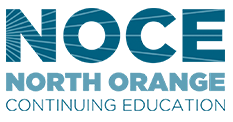
Financial aid (may be available)

Financial aid (may be available)

Financial aid (may be available)

Financial aid (may be available)
No cost info

$220 to start
$440 total

No cost info
$3,550 total
Financial aid (may be available)
OPTI Medical Systems supports the Online Quality Assurance Program (QAP) to add value to your OPTI CCA-TS2 analyzer. Online QAP facilitates the evaluation of quality control (QC) data with that of your peers for trends and shifts. Do not miss out on these valuable services that OPTI Medical provides OPTI analyzer users at no additional charge.
No cost info
The Graduate Certificate in Quality Assurance Compliance provides an in-depth knowledge of the global regulatory and compliance requirements for the development, marketing approval, and clinical utilization of biomedical products in today’s dynamic global healthcare environment.
No cost info
This program is designed for the chemist, bio-chemist or biologist in the pharmaceutical and biologic industry new to quality assurance and control, and is beneficial to senior year undergraduates and graduate students (using concurrent enrollment) interested in a career in QA/QC.
The program focuses on the quality requirements for the production and control of biologics and drugs, and the differences between quality control and quality assurance and their interaction with manufacturing. It highlights the importance of implementing and maintaining a quality system during the early stages of drug development, including the plethora of documents and controls necessary to make such a system effective. Guidelines and regulations from the FDA and the California State food and drug branch regulate the production of drug products. Quality Assurance (QA) monitors the manufacturer's compliance to these guidelines and regulations.
Instruction covers how to write, issue and control SOPs; manufacturing directions; and how to review and archive a batch history and other relevant documents. Emphasis is placed on conducting inspections and vendor audits for compliance to cGMPs to include contract manufacturers, bulk pharmaceutical chemical manufacturers and contract test laboratories. The program covers cGLPs and their applications to audits of facilities that provide toxicological services. Details on compiling, writing and archiving audit reports is provided.
No cost info
Quality assurance training helps applicants for understanding the basic concepts of information technology and software testing which help them excel as Quality Assurance (QA) specialists. The quality assurance course also covers physical products in determining defects in manufactured products and preventing them, pre-production, SDLC-Software Development Life Cycle, Production Environment vs Sandbox Environment, Mantis Bug Tracker, and many more. During the QA online training, you will learn how to decode the application of dynamic and static techniques, conduct walk-thoughts and audits, create a quality analysis, perform boundary value analysis, and test plan hands-on through this Quality assurance certification training.
No cost info
Mount St. Mary’s University is home to Maryland’s only certificate in quality assurance and regulatory science (QA/RS). The fully online program prepares you to lead your company through the efficient delivery of high-quality products within a competitive market.
No cost info
Are you interested in a career in Quality Assurance? Do you want to ensure that products or services meet the highest standards? If so, then enrolling in Quality Assurance classes can be a great way to kickstart your career. In this blog post, we will explore everything you need to know about Quality Assurance classes near you in Phoenix.

Quality Assurance is a critical aspect of any industry. It involves the systematic monitoring and evaluation of products, services, and processes to ensure that they meet specific standards. Quality Assurance professionals play a crucial role in identifying and resolving issues that may impact the overall quality of a product or service.
Quality Assurance is a process that ensures that products or services meet specified requirements and standards. It involves a combination of techniques and methodologies to prevent defects, reduce waste, and improve overall efficiency. Quality Assurance professionals are responsible for implementing and maintaining quality systems, conducting audits, analyzing data, and identifying areas for improvement.
To become a Quality Assurance professional, you will need to undergo specialized training. While there are no specific educational requirements for entry-level positions, most employers prefer candidates with at least a high school diploma or equivalent. Additionally, having a background in science, engineering, or a related field can give you an edge in the job market.
When choosing a Quality Assurance class, it's essential to consider a few key factors to ensure that you get the most out of your training. Here are some things to look for:
Accreditation: Make sure that the class you choose is accredited by a recognized accrediting body. This ensures that the training program meets certain quality standards and that your certification will be recognized by employers.
Curriculum: Review the curriculum of the class to ensure that it covers all the essential topics and skills needed for a career in Quality Assurance. Look for classes that offer hands-on training and practical experience.
Instructors: Research the qualifications and experience of the instructors who will be teaching the class. Experienced instructors can provide valuable insights and guidance throughout your training.
Class Size: Consider the class size and student-to-instructor ratio. Smaller class sizes allow for more individualized attention and better interaction with instructors.
Facilities and Resources: Check out the facilities and resources available to students. Quality Assurance classes often require access to specialized equipment and software, so it's essential to ensure that the class provides adequate resources for practical training.
Quality Assurance classes typically provide a combination of theoretical instruction and practical hands-on training. Here's what you can expect from the day-to-day class:
Lectures and Presentations: You will attend lectures and presentations where instructors will cover essential topics, theories, and concepts related to Quality Assurance.
Hands-on Training: You will have the opportunity to apply what you have learned through hands-on training exercises and practical assignments. This will help you develop the necessary skills and gain real-world experience.
Group Projects: Collaborating with your classmates on group projects is a common part of Quality Assurance classes. This allows you to work as part of a team and learn how to effectively communicate and problem-solve in a professional setting.
Industry Guest Speakers: Some classes may invite guest speakers from the industry to share their knowledge and experiences. This provides valuable insights into the practical applications of Quality Assurance in various industries.
After completing a Quality Assurance class, you may have the opportunity to obtain a certification. Certification can enhance your job prospects and demonstrate your commitment to professional development. The certification process typically involves the following steps:
Eligibility: Check the eligibility requirements for the certification you are interested in. These requirements may include a certain level of education or work experience.
Application: Submit an application to the certifying body along with any required documentation, such as transcripts or proof of work experience.
Exam: Prepare for and successfully pass the certification exam. The exam will test your knowledge and understanding of Quality Assurance principles and practices.
Continuing Education: Maintain your certification by fulfilling any continuing education requirements. This may involve attending workshops, seminars, or completing additional coursework.
Once you have completed your Quality Assurance training and obtained certification, it's time to start looking for job opportunities. Here are some strategies to help you find related jobs in Phoenix:
Online Job Boards: Utilize online job boards to search for Quality Assurance positions in the Phoenix area. Websites like Indeed, LinkedIn, and Glassdoor often have a wide range of job listings.
Networking: Attend industry events, career fairs, and professional networking events to connect with professionals in the field. Networking can help you gain insights into job openings and potentially lead to referrals.
Company Websites: Visit the websites of companies in Phoenix that you are interested in working for. Many companies post job openings directly on their websites.
Recruitment Agencies: Consider working with recruitment agencies specializing in Quality Assurance positions. These agencies can help match you with job opportunities that align with your skills and qualifications.
Once you have established yourself as a Quality Assurance professional, there are several other classes you can take to further enhance your skills and advance your career. Here are some options to consider:
Six Sigma Certification: Six Sigma is a methodology used to improve business processes and reduce defects. Obtaining Six Sigma certification can open up new career opportunities and demonstrate your expertise in process improvement.
Project Management Certification: Project management skills are highly valued in many industries. By obtaining a project management certification, you can expand your career prospects and take on leadership roles.
Data Analysis and Statistics: Building expertise in data analysis and statistics can be beneficial for Quality Assurance professionals. These skills are essential for analyzing quality data and making data-driven decisions.
Continuous Improvement and Lean Manufacturing: Continuous improvement and lean manufacturing are methodologies aimed at improving efficiency and reducing waste. Taking classes in these areas can help you become a well-rounded Quality Assurance professional.
Quality Assurance is a dynamic field that offers exciting career opportunities. By enrolling in Quality Assurance classes near you in Phoenix, you can gain the necessary skills and knowledge to excel in this field. Remember to choose a reputable training program, stay up-to-date with industry trends, and continuously seek opportunities for professional development. For more information on vocational training programs and career options, visit Dreambound.
Navigate the certification journey in this field with Dreambound's detailed guides, each crafted for various cities. For a deeper understanding of the process in other states, our additional guides may be able to help.
Pondering a shift in your career path or exploring different professional avenues? Dreambound has created detailed guides to support you in making informed decisions:
Dreambound's platform allows prospective students to find the right educational program for them through searching, filtering, and connecting with our extensive selection of career & technical education partners.
Dreambound has over 70 programs across healthcare, technology, business, and industrial trades. This includes programs such as Medical Billing, Cybersecurity, and welding.
Some of our schools offer financial aid for those who qualify. Many others offer payment plans, where you can pay the cost of class over time.
Yes, Dreambound offers many online programs. On Dreambound's search, you can filter by online, in-person, and hybrid (part online, part in-person).
Dreambound is completely free for you to use! We are supported by schools and organizations who pay to advertise on our website, so we can offer all of our career resources for free.